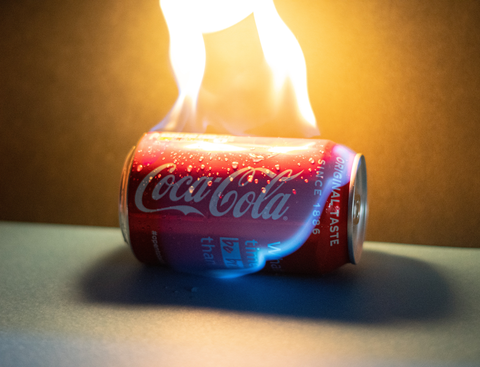
Affecting roughly one in five U.K. adults, gastroesophageal reflux disease (GERD) is a common medical condition from which millions of Americans suffer. Also known simply as acid reflux, GERD is a chronic digestive disorder in which gastric acid rises from the stomach up into the esophagus, causing symptoms like heartburn, halitosis, trouble breathing and tooth decay. Over time, exposure to gastric acid can damage the esophagus and even increase the risk of Barrett's Esophagus. But there are ways to manage GERD so that it doesn't affect your quality of life.
1) Avoid Eating Before Bedtime

Going to bed with a full stomach increases the risk of GERD in two ways. First, the contents of a full stomach help gastric acid rise up and into the esophagus. Second, the stomach produces more gastric acid when there's food in it to facilitate digestion. To manage GERD, avoid eating for at least three hours before bedtime. This will allow your stomach to digest food and subsequently reduce the amount of gastric acid it produces.
2) Cut Out Carbonated Beverages

Whether it's soda, diet soda or even sparkling water, cutting out all carbonated beverages from your diet is essential to managing GERD. Carbonated beverages contain dissolved carbon dioxide under pressure, which is responsible for their bubbly, fizzy characteristics. While they may be fun to drink, they increase the risk of GERD. When you drink a carbonated beverage, the carbonated dioxide bubbles will enter your stomach where they expand and press against the esophageal sphincter. As the pressure against it increases, your esophageal sphincter may open, allowing gastric acid to enter.
3) Beware of Spicy Foods

Eating spicy foods has been shown to increase the risk of GERD. Cajun-style seafood, tacos, hot chicken wings, enchiladas and other spicy foods can irritate your esophagus and encourage it to open. Not everyone will experience GERD after eating spicy foods, but if you notice symptoms immediately or shortly after eating something spicy, you should eliminate them from your diet.
4) Keep Your Stress Levels Under Control

People who are chronically stressed are more likely to develop GERD than their counterparts who keep their stress levels under control. Stress is a natural biological defense mechanism in humans that's associated with our fight-or-flight response. When confronted with a perceived threat, our nervous system goes into overdrive by releasing stress hormones like cortisol that cause an elevated heart rate and breathing rate. These physiological changes associated with stress also trigger the production of gastric acid. With more gastric acid in the stomach, there's a greater risk of some of this acid entering the esophagus and causing GERD, so keep your stress levels under control.
5) Get Your Vitamin D
Low vitamin D levels may increase the risk of GERD. Known as the sunshine vitamin, vitamin D is used primarily by our bodies to assist in the absorption of calcium, which promotes strong bones. However, our bodies also use vitamin D to regulate muscle functions. If you have low vitamin D levels, you may experience muscle weakness, twitching or spasms. And because the esophageal sphincter is a muscle -- technically a group of muscles -- low vitamin D levels can lead to GERD. To manage this frustrating digestive disorder, aim for a minimum of 600 International Units (IUs) of vitamin D daily.
6) Eat Smaller Meals

Statistics show that meal sizes served at U.S. restaurants has increased by an average of 200 percent to 300 percent in the last two decades. Unfortunately, this has led many Americans to unknowingly consume oversized portions. If you're guilty of eating large meals, whether at restaurants or at home, you may experience GERD as a result of increased stomach pressure. Your stomach can only hold so much food. If you eat too much, pressure will build up inside your stomach, which may force your esophageal sphincter to open.
#7) Elevate Your Head When Sleeping

Symptoms of GERD are most common at bedtime because lying down affects the position of gastric acid in the stomach. Gastric acid is normally stored at the bottom of your stomach. When you lie down to sleep, however, gastric acid can naturally flow to the back of your esophageal sphincter. An easy way to prevent this from happening is to elevate your upper chest, neck and head by about 6 to 8 inches from the rest of your body. With your head elevated, gravity will pull your gastric acid down to the bottom of your stomach rather than allowing it to touch your esophageal sphincter.
#8) Identify Triggers By Keeping a Journal

Keeping a daily journal can help you win your battle against GERD. Whenever you experience GERD, write down the date, symptoms, duration and any foods or beverages you consumed before the attack. Doing so will allow you to identify foods or beverages that trigger your GERD attacks.
Some triggers of GERD may include:
• Chocolate
• Pizza
• Tomato-based pasta
• Soda
• Tea
• Mint
• Alcoholic beverages
• Fried foods
• Fatty foods
• Citrus fruits
#9) Try an Apple Cider Vinegar
Apple Cider Vinegar is highly effective at treating and preventing GERD. They contain chemicals known as alkaline ions that, once inside the stomach, neutralize gastric acid. It's thought this home remedy helps balance your stomach pH by neutralizing stomach acid. It's generally accepted as safe to consume a small amount of apple cider vinegar. Dilute it with water.
#10) Manage Your Weight

Research has shown a link between body weight and GERD. A study published in the medical journal NEJM found that overweight adults were more than twice as likely to suffer from GERD than their counterparts with a normal body weight, and obese adults were almost three times as likely to suffer from GERD. If you fall under either of these categories, begin dieting and exercising to achieve a normal, healthy weight. Medical experts believe that a person's body weight affects the amount of pressure inside his or her stomach. People who are overweight or obese have more pressure inside their stomach than people with a normal body weight, and this increased pressure can force the esophageal sphincter to open.
GERD does more than just leave a bad taste in your mouth; it affects your quality of life. You can get back to enjoying your life, however, by following these tips.
#11) Rhubarb Complex®
An all natural yet effective formula to help aid digestion and relive the symptoms of bloating, IBS and other digestive issues. Join the 1000,s of happy customers across the UK and worldwide who have turned to Rhubarb Complex® to help improve their lifestyle.










